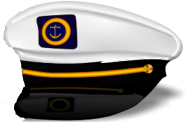Rights of Seafarers According to Maritime Labor Convention
Considering the international nature of marine industry, in 2001, need for standard set of rights and regulations for mariners, all over the globe, was felt. It was then that international seafarers’ and ship owner organizations decided to come with something similar.
The International Labor Organization came up with a convention dealing specifically with rights and responsibilities of marine workforce. The Maritime Labor Convention was thus introduced in 2006. The aim of this convention is to provide a set of basic rights that all seafarers must be provided, no conditions applied. The convention has yet not been brought into action as it awaits ratification from at least 30 of the member countries.
What does MLC Aims to Achieve?
Maritime Labor Convention was proposed with a view to make marine trade, globally fair and standardized for all the seafaring workmen without discrepancies due to regions. It was set with specific aims such as:
1. To set minimum standards for seafarers
2. Ensure fair working conditions all over the world
3. To modernize global standards for marine requirements
4. Address minimum requirements for conditions relating to employment, accommodation, recreational facilities, food and catering, health protection, medical care, welfare and social security
The rights of seafarers as mentioned in this convention are given below:
- According to maritime labor convention, every seafarer has the right to a safe and secure workplace that complies with international safety standards
- Seafarers must be provided with decent working and living conditions aboard
- Seafarers hold the right to claim health protection, medical care, welfare measures and other forms of social protection
- Every seafarer has a right to fair terms of employment
- A seafarer, at all times, holds the right to form or join trade unions of his/her choice
- A seafarer has the right to seek help of the union for negotiations of a collective bargaining agreement on his/her behalf
International Labor Organization mentions these broad rights as basic rights for all seafarers. Several other finer aspects of lives of seafaring workmen are covered under this convention. These aspects include:
1. Types of vessels – According to MLC, all seafarers working on any kind of vessels are eligible to claim these rights. However, vessels exempted from this conventions are
-fishing vessels
-warship vessels
-traditional vessels
-vessels that are restricted in their navigation to inland waters or coastal areas
These rights can further be exempted for vessels not carrying international seafarers and being restricted to the coastal regions alone, provided the rights under the port regulations cover basic seafarers’ rights as given by MLC.
2. Recruitment- as mentioned by ILO, no marine agency can charge a mariner for purpose of seeking recruitment. Only the services in terms of obtaining international documents, national seafarer’s book, medical certificates etc can be charged for.
3. Employment- MLC states that no marine employee below age of 18 years can be employed for hazardous works. General age for marine employment has been set at 16 years. Besides this, the MLC clearly states importance of official employment agreement. According the rights of seafarers as mentioned by MLC, an employment agreement must mention a seafaring individual’s
- Name, date and place of birth
- Ship owner’s name and address
- Exact designation
- Conditions of working
- Wages
- Added benefits
- Period of validity of agreement
- Number and conditions for paid leaves
- Clauses for terminating the agreement prematurely
4. Remuneration- MLC mentions a minimum wage level for all seafarers as USD $435 per month, with a minimum of 2.5 paid leaves per calendar month or combined annual leave in accordance with the same. Besides this, wage rights of seafarers include
- Payments should not be made at an interval exceeding a month
- Right to be paid for overtime as per the international standards
- Right to be paid all outstanding dues in cash in case of termination of project
- Right to freedom to send all or part of earnings back home
- Right to not be charged additionally in lieu of taxes or overhead expenses from the salary
5. Working conditions- Working conditions as mentioned by MLC include both the working hours and the physical conditions of work. The physical environment for work for seafarers should be safe and physically comfortable to work in.
These conditions should not only be provided with safety features depending on nature of the job but the dimensions and its general structure should allow the seafarers to work comfortably in the work area. The work hours, as mentioned by MLC state:
- A work schedule of maximum 14 hours in 24 hour period
- A minimum of one day of rest in a week cycle
- A minimum of 10 hours’ rest in a 24 hour period
- A maximum of 48 hours of overtime work in a weekly cycle
6. Accommodation and Recreational facilities- The international Labor Organization and MLC together maintain that accommodation facilities offered to seafaring individuals on any vessel must be:
- Decent
- With proper heating and ventilation systems
- Protective of noise and vibrations
- Sanitary
- Adequately insulated
- Not cause any general or specific discomfort to mariners
MLC requires competent authorities to conduct frequent inspections to ensure proper accommodation facilities including food and catering services and recreational facilities.
The Maritime Labor Convention defines seafarers as any person who is employed or engaged or works in any capacity on board a ship.
As such, all the above mentioned rights apply to all such individuals in the 18 countries that have ratified the convention. They include- Liberia, Marshall Islands, Bahamas, Panama, Norway, Bosnia and Herzegovina, Spain, Croatia, Bulgaria, Canada, Saint Vincent and the Grenadines, Switzerland, Gabon, Benin, Singapore, Denmark, Latvia, Antigua, and Barbuda. Inability to meet any of these guidelines in above mentioned countries would qualify the seafarers to seek official help.
marineinsight.com
